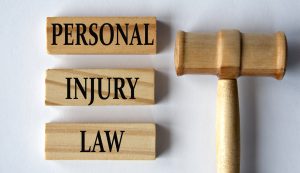Nurses are the backbone of the entire healthcare system.
They are responsible for patient safety and providing quality care.
But, sometimes, even experienced professionals can face allegations that put their nursing licenses at risk.
A simple complaint to the state board of nursing – and it all leads to investigations, penalties, or even the loss of a license.
When this happens - knowing how to respond is very critical.
Nurses must take the right steps to protect their careers, reputation, and ability to practice.
Understanding nursing disciplinary action
The state board of nursing regulates nursing practice + investigates complaints. If the board finds evidence of misconduct, it may take disciplinary action.
This process can result in –
- Warnings
- Fines
- Probation
- License suspension
- Permanent revocation
While some cases involve clear violations - others stem from misunderstandings, documentation errors, or even workplace conflicts.
Having a nursing license defense law firm on your side can be of great help. Because legal professionals understand the process and know how to fight for a nurse’s rights.
Many nurses who try to handle their cases alone often struggle to handle the complexities of administrative hearings and legal proceedings. A nursing license defense lawyer from Brown Law Office can provide the right guidance and representation.
Common reasons for disciplinary action
Nurses may face disciplinary action for several reasons, including….
- Failure to follow nursing practice standards – Errors in medication administration, improper charting, or patient care mistakes.
- Boundary violations – Accepting expensive gifts, forming inappropriate relationships with patients, or discussing personal issues.
- Substance misuse – Drug diversion or working under the influence of alcohol or controlled substances.
- Patient abuse or neglect – Physical, verbal, or emotional mistreatment of patients.
- Criminal convictions – DUI, theft, or other offenses that affect professional standing.
- Fraud – Falsifying records, misrepresenting credentials, or submitting fraudulent insurance claims.
Even minor complaints can escalate
Nurses must take every allegation seriously and seek help immediately. A nursing license defense law firm can –
- Assess the situation
- Gather evidence
- And build a strong case to challenge unfair accusations
Steps to take if facing nursing disciplinary action
1. Always stay calm and avoid self-incrimination
A complaint can feel like a nightmare.
But panicking or responding impulsively can make the situation even worse. Nurses should not admit fault, provide unnecessary details, or make emotional statements.
Anything said to an employer + investigator + colleague may be used against them.
Instead, they should consult a nursing license defense law firm before making any statements. An attorney will review the case + explain the allegations + provide strategic advice.
2. Review the complaint carefully
The state board of nursing sends a formal notice when a complaint is filed. This document outlines the alleged violations and possible penalties.
Nurses should read it thoroughly and note deadlines for responses.
A nursing license defense law firm can help draft a response that presents facts clearly and professionally.
In many cases - a well-prepared response can prevent further investigation or disciplinary action.
3. Gather evidence and documentation
Evidence matters a lot in such cases. It is the most important element in defending a nursing license. Nurses should collect…
- Patient records – Charts + medication logs + physician notes related to the case.
- Work policies – Hospital or facility protocols that support their actions.
- Eyewitness statements – Colleagues or supervisors who can confirm proper conduct.
- Prior performance evaluations – Evidence of professionalism and competence.
A nursing license defense law firm will organize this information and use it to challenge false allegations.
Strong documentation can prove that a complaint is unfounded or exaggerated.
4. Cooperate with the investigation, but with caution
State nursing boards conduct investigations to determine if disciplinary action is necessary.
This may involve –
- Interviews
- Written statements
- Document reviews
While nurses should cooperate - they must also protect their rights.
Speaking without legal representation can lead to misunderstandings or unintentional self-incrimination. A nursing license defense law firm guarantees that responses are accurate and legally sound. If necessary - they can challenge biased investigations or unfair treatment.
5. Attend hearings and settlement conferences
If the board moves forward with the case - the nurse may need to attend hearings or settlement discussions. A settlement may involve -lesser penalties, such as - remedial education instead of license suspension.
A nursing license defense law firm will negotiate on the nurse’s behalf. They will try the best possible outcome. If a hearing is required - the attorney will –
- Present evidence
- Question witnesses
- And argue the case effectively
6. Appeal unfair decisions
If the board issues a disciplinary action - it is not always the final decision. Nurses have the right to appeal.
A nursing license defense law firm can –
- File appeals
- Request reconsiderations
- Present new evidence when appropriate
In some cases - they can negotiate alternative disciplinary measures that allow the nurse to continue practicing.
Preventing future issues
Resolving a disciplinary case is not the final solution. Nurses should take steps to avoid future complaints.
1. Follow nursing practice standards
Adhering to hospital protocols and state regulations reduces the risk of violations. Nurses should double-check medication orders + document care properly + ask for clarification when needed.
2. Avoid ethical and boundary violations
Maintaining professional relationships with patients is essential. Nurses should decline expensive gifts and avoid personal involvement in patient affairs. They should also report any conflicts of interest to supervisors.
3. Address substance misuse proactively
If struggling with substance use - nurses should seek help before a complaint arises. Many states offer alternative-to-discipline programs that allow nurses to receive treatment while keeping their licenses.
4. Know the Nurse Practice Act
Each state has its own rules for nursing practice. Understanding these laws helps nurses avoid unintentional violations. Regular training and legal updates are beneficial.
5. Work with a nursing license defense law firm when needed
A nursing license defense law firm is not only for nurses already facing complaints. They can also provide proactive legal advice to prevent problems. Nurses who receive job-related warnings or suspect upcoming complaints should consult an attorney early.
Conclusion
Nursing disciplinary action is a serious matter.
Even a minor complaint can lead to investigations and penalties that affect a nurse’s career. Responding properly is crucial. Nurses should remain calm + gather evidence + seek legal representation as soon as possible.
A nursing license defense law firm can provide the guidance needed to navigate the disciplinary process. It is the smartest way to help protect licenses and careers.





















